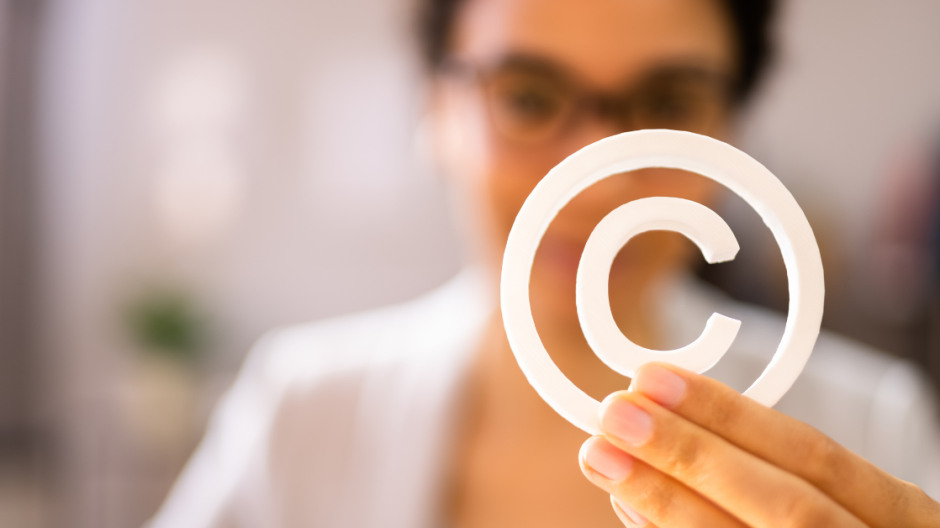As a startup founder, protecting your intellectual property (IP) is just as important as developing your product or service. Without proper legal protection, your brand, creative works, and business assets are vulnerable to theft, misuse, or imitation.
Two of the most critical forms of IP protection are trademarks and copyrights. While both serve to protect different aspects of a business, choosing the right one depends on your startup’s industry, growth plans, and the nature of your assets.
This guide breaks down the startup intellectual property protection options, what trademarks and copyrights cover, their benefits, and how startups can leverage them for long-term protection.
What is Trademark Protection?
A trademark is a legally registered name, logo, slogan, or symbol that represents a business and sets it apart from competitors. Trademarks help build brand identity and prevent confusion among consumers.
What Can You Trademark?
- Brand name (e.g., Nike, Apple, Tesla)
- Logos & symbols (e.g., McDonald’s golden arches, Twitter’s bird logo)
- Taglines & slogans (e.g., “Just Do It” by Nike)
- Distinctive product packaging (e.g., Coca-Cola’s unique bottle shape)
Why Trademarks Matter for Startups
- Brand Recognition – A trademark strengthens brand identity and builds trust with consumers.
- Exclusive Rights – Prevents other businesses from using a similar name or logo within your industry.
- Legal Protection – Gives you the right to sue anyone infringing on your brand.
If your startup is brand-driven and focuses on establishing a unique identity in the market, trademarking your name and logo is a critical step.
What is Copyright Protection?
A copyright protects original creative works such as written content, software code, digital designs, music, and videos. Copyright gives exclusive rights to reproduce, distribute, and monetize the work.
What Can You Copyright?
- Website content, blog articles, and written materials
- Software code, mobile applications, and digital products
- Graphic designs, logos, and marketing materials
- Music, films, books, photography, and original creative works
Why Copyrights Matter for Startups
- Creative Ownership – Ensures that your original content, software, and creative works are legally recognized as yours.
- Competitive Edge – Prevents competitors from copying your intellectual property.
- Monetization & Licensing – Allows startups to sell, license, or repurpose their content for additional revenue.
Startups that create content, software, or media assets should prioritize copyright protection to prevent unauthorized use and preserve ownership rights.
Trademark vs. Copyright: Which One Does Your Startup Need?
Choosing between trademark and copyright protection depends on what your startup creates and how it operates.
If your startup focuses on branding and identity, trademarking your name and logo ensures exclusive ownership and prevents imitation.
If your startup produces original content, software, or creative works, copyright protection secures your intellectual property and ensures that you control how it’s used or monetized.
For some startups, both trademark and copyright protection may be necessary. For example, a tech startup may need to trademark its brand name and logo while also copyrighting its proprietary software code.
Industry-Specific Intellectual Property Protection
Tech Startups
Tech startups need both trademark and copyright protection to safeguard their brand identity and software innovations.
- Trademarks protect brand names, logos, and product identities (e.g., Apple, Microsoft).
- Copyrights protect software code, mobile apps, and UI/UX designs (e.g., Facebook, Zoom).
Fashion & Apparel Startups
Fashion brands rely heavily on trademark protection to establish their unique identity in the market.
- Trademarks protect brand names, logos, and product designs (e.g., Nike’s swoosh logo, Adidas’ three stripes).
- Copyrights protect original textile patterns, fashion prints, and creative designs.
Food & Beverage Startups
Restaurants and food brands use trademark protection to secure their branding and distinctive packaging.
- Trademarks cover brand names, logos, and product packaging (e.g., Coca-Cola’s bottle shape).
- Copyrights protect cookbooks, food photography, and original recipes (if in written form).
Creative Content & Media Startups
Startups that produce digital content, films, books, or music depend on copyright protection to prevent unauthorized use.
- Trademarks secure brand identities and entertainment brands (e.g., Disney, Warner Bros.).
- Copyrights cover movies, music, books, photography, and digital content.
How to Register a Trademark or Copyright for Your Startup
Trademark Registration Process
- Conduct a trademark search to ensure your name or logo isn’t already taken.
- Apply for a trademark with your country’s Intellectual Property Office (e.g., USPTO in the U.S., ARIPO in Africa).
- Pay the required fees and submit documentation.
- Once approved, you have exclusive rights to use the trademark.
Copyright Registration Process
- Create an original work (content, software, design, media, etc.).
- Apply for a copyright with your country’s Copyright Office.
- Submit proof of authorship and pay the registration fee.
- Once registered, your work is legally protected from infringement.
Even if you don’t formally register a copyright, your work is still protected under copyright law as soon as it is created. However, formal registration strengthens your legal standing in case of disputes.
Protecting your startup’s intellectual property is just one piece of the puzzle—securing the right funding model is just as critical for long-term success. Whether you’re considering SAFE notes, convertible debt, or equity financing, understanding the best approach can make a huge difference in attracting investors while maintaining control of your business.
Learn more about the best startup funding models and how to choose between SAFE, convertible notes, and equity: Read here




